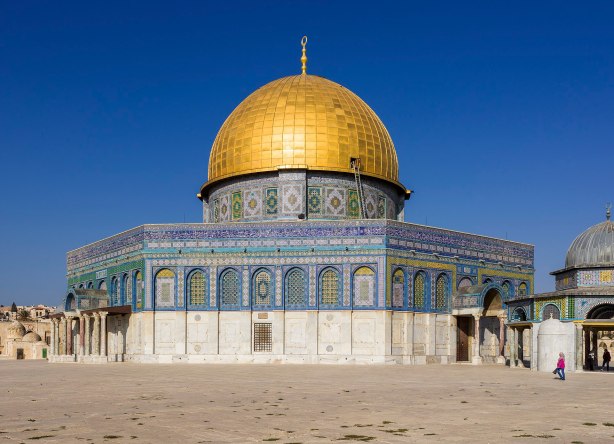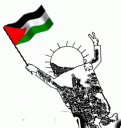Protesters in Tahrir Square are right to be sceptical despite the apparent shake-up in Egypt’s ruling party
The old man is going. The resignation last night of the leadership of the ruling Egyptian National Democratic Party – including Hosni Mubarak‘s son Gamal – will not appease those who want to claw the President down. But they will get their blood. The whole vast edifice of power which the NDP represented in Egypt is now a mere shell, a propaganda poster with nothing behind it.
The sight of Mubarak’s delusory new Prime Minister Ahmed Shafiq telling Egyptians yesterday that things were “returning to normal” was enough to prove to the protesters in Tahrir Square – 12 days into their mass demand for the exile of the man who has ruled the country for 30 years – that the regime was made of cardboard. When the head of the army’s central command personally pleaded with the tens of thousands of pro-democracy demonstrators in the square to go home, they simply howled him down.
In his novel The Autumn of the Patriarch, Gabriel Garcia Marquez outlines the behaviour of a dictator under threat and his psychology of total denial. In his glory days, the autocrat believes he is a national hero. Faced with rebellion, he blames “foreign hands” and “hidden agendas” for this inexplicable revolt against his benevolent but absolute rule. Those fomenting the insurrection are “used and manipulated by foreign powers who hate our country”. Then – and here I use a precis of Marquez by the great Egyptian author Alaa Al-Aswany – “the dictator tries to test the limits of the engine, by doing everything except what he should do. He becomes dangerous. After that, he agrees to do anything they want him to do. Then he goes away”.
Hosni Mubarak of Egypt appears to be on the cusp of stage four – the final departure.
For 30 years he was the “national hero” – participant in the 1973 war, former head of the Egyptian air force, natural successor to Gamal Abdel Nasser as well as Anwar Sadat – and then, faced with his people’s increasing fury at his dictatorial rule, his police state and his torturers and the corruption of his regime, he blamed the dark shadow of the country’s fictional enemies (al-Qa’ida, the Muslim Brotherhood, al-Jazeera, CNN, America). We may just have passed the dangerous phase.
Twenty-two lawyers were arrested by Mubarak’s state security police on Thursday – for assisting yet more civil rights lawyers who were investigating the arrest and imprisonment of more than 600 Egyptian protesters. The vicious anti-riot cops who were mercifully driven off the streets of Cairo nine days ago and the drug-addled gangs paid by them are part of the wounded and dangerous dictator’s remaining weapons. These thugs – who work directly under ministry of interior orders – are the same men now shooting at night into Tahrir Square, killing three men and wounding another 40 early on Friday morning. Mubarak’s weepy interview with Christiane Amanpour last week – in which he claimed he didn’t want to be president but had to carry on for another seven months to save Egypt from “chaos” – was the first hint that stage four was on the way.
Al-Aswany has taken to romanticising the revolution (if that is what it truly is). He has fallen into the habit of holding literary mornings before joining the insurrectionists, and last week he suggested that a revolution makes a man more honourable – just as falling in love makes a person more dignified. I suggested to him that a lot of people who fall in love spend an inordinate amount of time eliminating their rivals and that I couldn’t think of a revolution that hadn’t done the same. But his reply, that Egypt had been a liberal society since the days of Muhammad Ali Pasha and was the first Arab country (in the 19th century) to enjoy party politics, did carry conviction.
If Mubarak goes today or later this week, Egyptians will debate why it took so long to rid themselves of this tin-pot dictator. The problem was that under the autocrats – Nasser, Sadat, Mubarak and whomever Washington blesses next – the Egyptian people skipped two generations of maturity. For the first essential task of a dictator is to “infantilise” his people, to transform them into political six-year-olds, obedient to a patriarchal headmaster. They will be given fake newspapers, fake elections, fake ministers and lots of false promises. If they obey, they might even become one of the fake ministers; if they disobey, they will be beaten up in the local police station, or imprisoned in the Tora jail complex or, if persistently violent, hanged.
Only when the power of youth and technology forced this docile Egyptian population to grow up and stage its inevitable revolt did it become evident to all of these previously “infantilised” people that the government was itself composed of children, the eldest of them 83 years old. Yet, by a ghastly process of political osmosis, the dictator had for 30 years also “infantilised” his supposedly mature allies in the West. They bought the line that Mubarak alone remained the iron wall holding back the Islamic tide seeping across Egypt and the rest of the Arab world. The Muslim Brotherhood – with genuine historical roots in Egypt and every right to enter parliament in a fair election – remains the bogeyman on the lips of every news presenter, although they have not the slightest idea what it is or was.
But now the infantilisation has gone further. Lord Blair of Isfahan popped up on CNN the other night, blustering badly when asked if he would compare Mubarak with Saddam Hussein. Absolutely not, he said. Saddam had impoverished a country that once had a higher standard of living than Belgium – while Mubarak had increased Egypt’s GDP by 50 per cent in 10 years.
What Blair should have said was that Saddam killed tens of thousands of his own people while Mubarak has killed/hanged/tortured only a few thousand. But Blair’s shirt is now almost as blood-spattered as Saddam’s; so dictators, it seems, must now be judged only on their economic record. Obama went one further. Mubarak, he told us early yesterday, was “a proud man, but a great patriot”.
This was extraordinary. To make such a claim, it was necessary to believe that the massive evidence of savagery by Egypt’s state security police over 30 years, the torture and the vicious treatment of demonstrators over the past 13 days, was unknown to the dictator. Mubarak, in his elderly innocence, may have been aware of corruption and perhaps the odd “excess” – a word we are beginning to hear again in Cairo – but not of the systematic abuse of human rights, the falsity of every election.
This is the old Russian fairy tale. The tsar is a great father figure, a revered and perfect leader. It’s just that he does not know what his underlings are doing. He doesn’t realise how badly the serfs are treated. If only someone would tell him the truth, he would end injustice. The tsar’s servants, of course, connived at this.
But Mubarak was not ignorant of the injustice of his regime. He survived by repression and threats and false elections. He always had. Like Sadat. Like Nasser who – according to the testimony of one of his victims who was a friend of mine – permitted his torturers to dangle prisoners over vats of boiling faeces and gently dunk them in it. Over 30 years, successive US ambassadors have informed Mubarak of the cruelties perpetrated in his name. Occasionally, Mubarak would express surprise and once promised to end police brutality, but nothing ever changed. The tsar fully approved of what his secret policemen were doing.
Thus, when David Cameron announced that “if” the authorities were behind the violence in Egypt, it would be “absolutely unacceptable” – a threat that naturally had them shaking in their shoes – the word “if” was a lie. Cameron, unless he doesn’t bother to read the Foreign Office briefings on Mubarak, is well aware that the old man was a third-rate dictator who employed violence to stay in power.
The demonstrators in Cairo and Alexandria and Port Said, of course, are nonetheless entering a period of great fear. Their “Day of Departure” on Friday – predicated on the idea that if they really believed Mubarak would leave last week, he would somehow follow the will of the people – turned yesterday into the “Day of Disillusion”. They are now constructing a committee of economists, intellectuals, “honest” politicians to negotiate with Vice-President Omar Suleiman – without apparently realising that Suleiman is the next safe-pair-of-hands general to be approved by the Americans, that Suleiman is a ruthless man who will not hesitate to use the same state security police as Mubarak relied upon to eliminate the state’s enemies in Tahrir Square.
Betrayal always follows a successful revolution. And this may yet come to pass. The dark cynicism of the regime remains. Many pro-democracy demonstrators have noticed a strange phenomenon. In the months before the protests broke out on 25 January, a series of attacks on Coptic Christians and their churches spread across Egypt. The Pope called for the protection of Egypt’s 10 per cent Christians. The West was appalled. Mubarak blamed it all on the familiar “foreign hand”. But then after 25 January, not a hair of a Coptic head has been harmed. Why? Because the perpetrators had other violent missions to perform?
When Mubarak goes, terrible truths will be revealed. The world, as they say, waits. But none wait more attentively, more bravely, more fearfully than the young men and women in Tahrir Square. If they are truly on the edge of victory, they are safe. If they are not, there will come the midnight knock on many a door.
The key players
Hosni Mubarak
A former Egyptian air force commander who was thrust into power after Anwar Sadat’s assassination in 1982, Mubarak has proved to be a ruthless and resilient President. By combining political repression at home with close relations with the US, and relatively cordial relations with Israel, he has been able to retain Egypt’s place as a pivotal voice in the Arab world. His handling of the Egyptian economy has been less successful, however.
Ahmed Shafik
Like President Mubarak, Prime Minister Shafik’s background is in the Egyptian air force, which he at one point commanded; he has also served as aviation minister. Both his military background and his reputation for efficiency as a government minister made him an obvious choice during the reshuffle forced by the protests.
Omar Suleiman
As the head of the Mukhabarat, Egypt’s secret service, Suleiman was one of the most powerful and feared men in Egypt. He also cultivated a close relationship with the US: Mukhabarat cells became one of the destinations for terror suspects who had been “renditioned” by the CIA. As Egypt’s new Vice-President, however, he hardly represents a new face for the Mubarak regime. Reports of an assassination attempt against him last week have been denied by the Egyptian authorities.
Mohamed Elbaradei
Winner of the Nobel Peace prize, the former head of the International Atomic Energy Agency has the highest international profile of Mubarak’s potential successors. However, he still lacks a strong domestic support base in Egypt, and among the Tahrir Square protesters. It remains to be seen whether he has time to build that kind of support before Mubarak leaves.
Quotes…
“We need to get a national consensus around the pre-conditions for the next step forward. The President must stay in office to steer those changes.”
Frank Wisner, US special envoy for Egypt
“There are forces at work in any society, and particularly one that is facing these kinds of challenges, that will try to derail or overtake the process to pursue their own specific agenda…. [That is] why I think it is important to support the transition process announced by the Egyptian government, actually headed by now Vice-President Omar Suleiman.”
Hillary Clinton, US Secretary of State
“We need a transition of power within a constitutional framework. At this stage, we have two possible directions: either constitutional reforms or a coup d’état by the army. I don’t see another way out.”
Mounir Fakhry Abdel Nour, secretary general of the liberal Wafd Party
“I don’t believe that we solve the world’s problems by flicking a switch and holding an election…. Egypt is a classic case in point.”
David Cameron, speaking at security conference in Munich
“I think a very quick election at the start of a process of democratisation would be wrong…. If there is an election first, new structures of political dialogue and decision-making don’t have a chance to develop.”
Angela Merkel, German Chancellor































